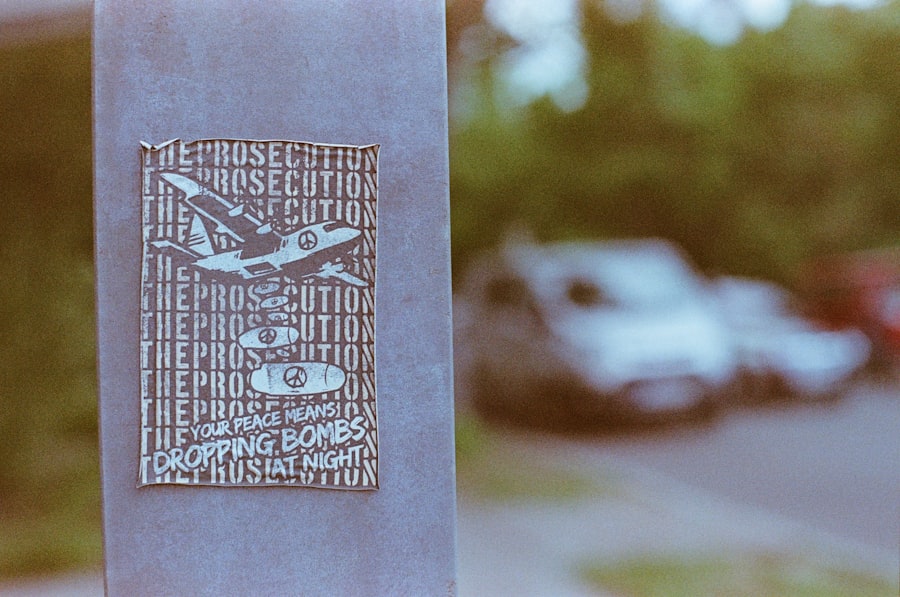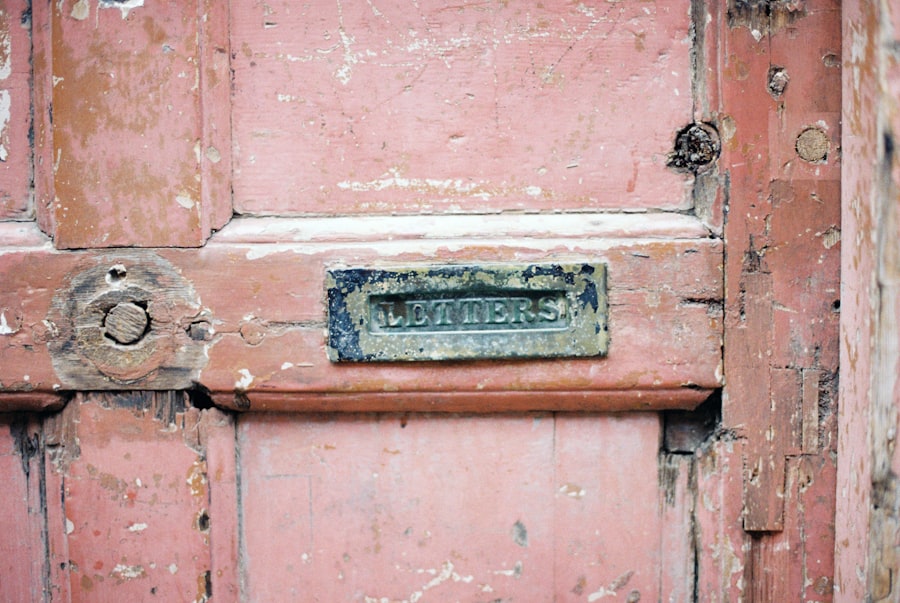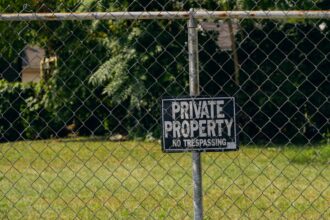Real estate forgery is a serious issue that can have far-reaching consequences for all parties involved in property transactions. As I delve into this topic, I find it essential to understand what constitutes real estate forgery. Essentially, it involves the falsification of documents related to property ownership, such as deeds, titles, or mortgage agreements.
This fraudulent activity can lead to significant legal and financial repercussions, not only for the perpetrators but also for unsuspecting buyers, sellers, and financial institutions. The rise of technology has made it easier for individuals to commit forgery, as digital tools can be used to create convincing fake documents. However, the implications of such actions are severe.
I have seen firsthand how real estate forgery can disrupt lives, tarnish reputations, and lead to lengthy legal battles. As I explore the various facets of this issue, I aim to shed light on the legal consequences, financial risks, and the broader impact on property ownership and the real estate market.
Key Takeaways
- Real estate forgery involves the fraudulent alteration or creation of documents related to property ownership.
- Legal consequences of real estate forgery can include criminal charges, civil litigation, and financial penalties.
- Financial risks of real estate forgery can result in loss of property value, legal fees, and potential foreclosure.
- Real estate forgery can impact property ownership by clouding title and creating disputes over rightful ownership.
- Title insurance can be affected by real estate forgery, potentially leading to coverage disputes and financial losses.
Legal Consequences of Real Estate Forgery
The legal ramifications of real estate forgery are profound and multifaceted. When I consider the potential outcomes for those found guilty of such acts, it becomes clear that the law takes these offenses very seriously. Forgery is typically classified as a felony, which can result in substantial prison time and hefty fines.
In many jurisdictions, the penalties can escalate depending on the scale of the forgery and whether it involved multiple properties or victims. Moreover, the legal consequences extend beyond criminal charges. Victims of real estate forgery often find themselves embroiled in civil litigation as they seek to reclaim their rightful ownership or recover damages.
I have observed how these cases can drag on for years, consuming valuable time and resources.
Financial Risks of Real Estate Forgery

The financial implications of real estate forgery are staggering. For individuals who unknowingly purchase a property with forged documents, the risk of losing their investment is alarmingly high. I have seen cases where buyers have invested their life savings into a home, only to discover later that the title was fraudulent.
This not only results in a financial loss but also leads to emotional distress and uncertainty about their future. Additionally, the ripple effect of real estate forgery can impact entire communities and markets. When properties are sold under false pretenses, it can lead to a decline in property values in the surrounding area.
I have witnessed neighborhoods suffer as trust erodes among residents and potential buyers become wary of investing in properties that may have questionable titles. The financial risks associated with real estate forgery are not limited to individual buyers; they extend to sellers, lenders, and even local governments.
Impact on Property Ownership
| Factors | Impact |
|---|---|
| Property Taxes | May increase or decrease based on local government decisions |
| Property Value | Can appreciate or depreciate over time due to market conditions |
| Ownership Costs | Can be affected by maintenance, insurance, and mortgage rates |
| Regulations | Changes in zoning laws or building codes can impact property use |
The impact of real estate forgery on property ownership is profound and often devastating. When I think about the sanctity of property rights, it becomes evident that forgery undermines this fundamental principle. Individuals who believe they own their homes may find themselves facing legal challenges from individuals claiming rightful ownership due to forged documents.
This can lead to protracted disputes that not only affect the individuals involved but also create uncertainty in the broader real estate market. Furthermore, the emotional toll on victims of real estate forgery cannot be overstated. I have seen families torn apart by the stress of losing their homes or facing eviction due to fraudulent claims.
The psychological impact of such experiences can linger long after the legal battles are resolved. The sense of security that comes with homeownership is shattered, leaving individuals feeling vulnerable and distrustful of future transactions.
Effects on Title Insurance
Title insurance plays a crucial role in protecting property owners from potential claims against their titles. However, when real estate forgery is involved, the effectiveness of title insurance can be called into question. I have learned that many title insurance policies contain exclusions for losses arising from fraud or forgery, which means that victims may find themselves without recourse when they discover they have been duped.
In some cases, title insurance companies may attempt to deny claims based on technicalities or loopholes in their policies. This can leave victims feeling helpless and frustrated as they navigate a complex web of legal jargon and insurance regulations. The effects of real estate forgery on title insurance not only impact individual homeowners but also contribute to a general sense of unease in the real estate market.
Risks to Buyers and Sellers

Both buyers and sellers face significant risks when it comes to real estate forgery. As a buyer, I am acutely aware that purchasing a property involves trusting that all documentation is legitimate and accurate. However, with sophisticated forgery techniques becoming more prevalent, it is increasingly challenging to discern genuine documents from fraudulent ones.
I have heard stories of buyers who conducted thorough due diligence only to discover later that they had been misled. Sellers are not immune to these risks either. I have seen cases where sellers unknowingly sell properties with forged documents, leading to disputes with buyers who feel cheated or misled.
This not only damages the seller’s reputation but can also result in costly legal battles that drain resources and time. The risks associated with real estate forgery create an environment of distrust that can hinder transactions and stifle market growth.
Ramifications for Lenders and Financial Institutions
Lenders and financial institutions also bear significant risks when it comes to real estate forgery. When I consider the role these entities play in facilitating property transactions, it becomes clear that they are not just passive observers; they are active participants in the process. If a lender unknowingly finances a property with forged documents, they may face substantial financial losses if the transaction is later deemed invalid.
Moreover, lenders may find themselves embroiled in legal disputes as they attempt to recover their losses or defend against claims from defrauded borrowers. I have seen how these situations can lead to increased scrutiny from regulators and damage a lender’s reputation in the industry. The ramifications for financial institutions extend beyond immediate financial losses; they can also impact their ability to attract new clients and maintain trust within the community.
Potential Criminal Charges
The potential criminal charges associated with real estate forgery are severe and can vary depending on jurisdiction and the specifics of each case. When I think about the consequences faced by those convicted of such crimes, it becomes evident that the legal system does not take these offenses lightly. Individuals found guilty may face felony charges that carry lengthy prison sentences and substantial fines.
In addition to criminal penalties, those convicted may also face civil repercussions as victims seek restitution for their losses. I have observed how these dual consequences can create a chilling effect on potential offenders who may think twice before engaging in such fraudulent activities. The prospect of facing both criminal charges and civil litigation serves as a deterrent for many individuals considering real estate forgery.
Civil Litigation and Legal Remedies
Civil litigation is often a necessary avenue for victims of real estate forgery seeking justice and compensation for their losses. When I consider the complexities involved in these cases, it becomes clear that navigating the legal system can be daunting for those without legal expertise. Victims may need to engage attorneys who specialize in real estate law to help them build their cases and pursue appropriate remedies.
In many instances, civil litigation can lead to settlements or judgments that provide some measure of relief for victims. However, I have seen how these processes can be lengthy and emotionally taxing, often taking years to resolve fully. The pursuit of justice through civil litigation underscores the importance of having robust legal protections in place for property owners and highlights the need for greater awareness about real estate forgery.
Repercussions for Real Estate Agents and Brokers
Real estate agents and brokers play a pivotal role in facilitating property transactions, but they also face significant repercussions if they become entangled in cases of real estate forgery. When I think about the ethical responsibilities that come with this profession, it becomes clear that agents must exercise due diligence to ensure that all documentation is legitimate before proceeding with transactions. If an agent is found to have knowingly participated in or overlooked signs of forgery, they may face disciplinary action from licensing boards or professional organizations.
Additionally, I have seen how such incidents can tarnish an agent’s reputation and lead to a loss of clients and business opportunities. The repercussions for real estate professionals serve as a reminder of the importance of maintaining integrity and vigilance in every transaction.
Tips for Preventing Real Estate Forgery
Preventing real estate forgery requires vigilance and proactive measures from all parties involved in property transactions. As I reflect on effective strategies for mitigating this risk, I recognize that education is paramount. Buyers should be encouraged to conduct thorough research on properties before making purchases, including verifying ownership history through public records.
Additionally, working with reputable professionals—such as licensed real estate agents, attorneys, and title companies—can provide an added layer of protection against potential fraud. I have learned that utilizing technology responsibly can also aid in preventing forgery; digital signatures and secure document-sharing platforms can help ensure authenticity while minimizing opportunities for manipulation. In conclusion, real estate forgery poses significant challenges for individuals and institutions alike.
By understanding its implications and taking proactive steps to prevent it, we can work towards creating a more secure environment for property transactions. As I continue to explore this topic, I remain committed to raising awareness about the risks associated with real estate forgery and advocating for stronger protections for all stakeholders involved in the process.
Real estate forgery can have severe consequences, impacting both individuals and the broader market. This fraudulent activity often leads to financial losses, legal battles, and a loss of trust in real estate transactions. Victims may find themselves entangled in lengthy legal processes to reclaim their property or recover financial losses. Moreover, the prevalence of forgery can deter potential buyers and investors, leading to a slowdown in the real estate market. For a deeper understanding of the implications of real estate forgery, you can read a related article on this topic by visiting this page.
✅WATCH NOW! My Mother-in-Law’s Real Estate Heist Collapses Spectacularly
FAQs
What is real estate forgery?
Real estate forgery refers to the act of falsifying documents or signatures related to real estate transactions, such as deeds, mortgages, or property titles, with the intent to deceive or defraud.
What are the consequences of real estate forgery?
The consequences of real estate forgery can include legal penalties such as fines, imprisonment, and civil lawsuits. Additionally, forged real estate documents can lead to disputes over property ownership, clouded titles, and difficulties in selling or transferring the property.
How can real estate forgery be detected?
Real estate forgery can be detected through careful examination of documents, including verifying signatures, checking for inconsistencies or irregularities, and conducting thorough due diligence during real estate transactions.
What should I do if I suspect real estate forgery?
If you suspect real estate forgery, it is important to report your suspicions to the appropriate authorities, such as law enforcement or real estate regulatory agencies. Additionally, seeking legal advice from a qualified attorney can help protect your interests and address any potential consequences of the forgery.




